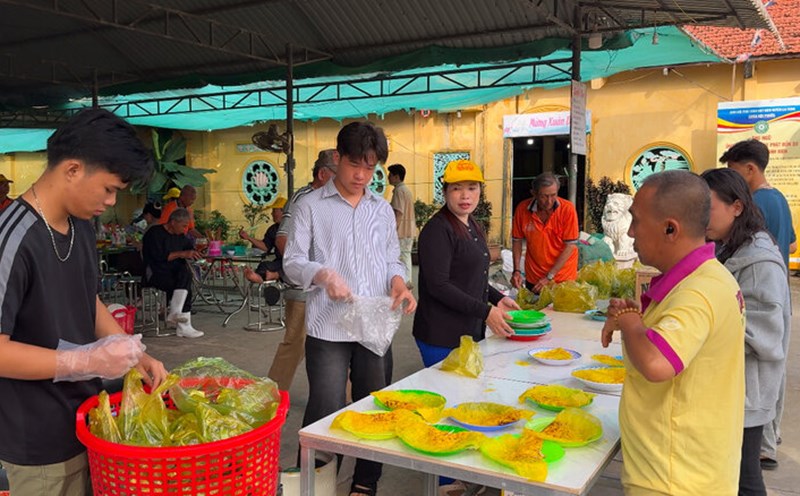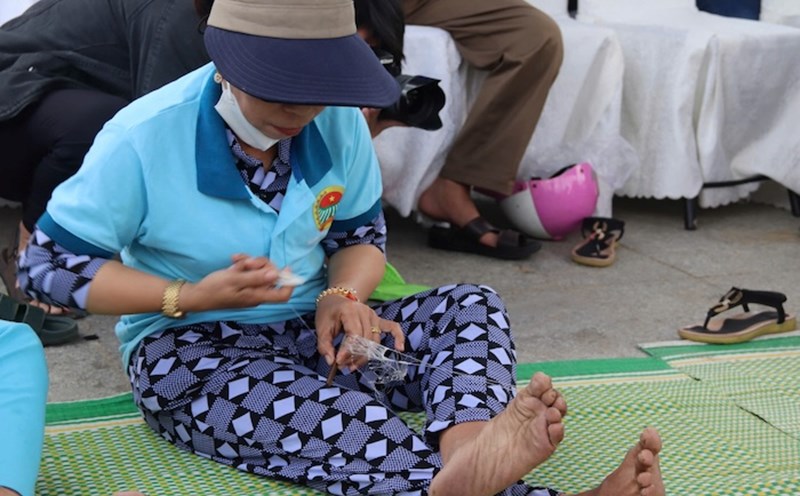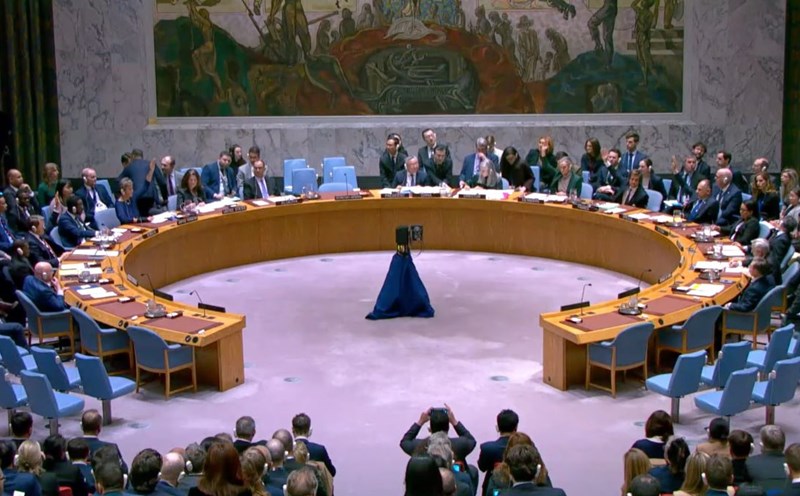Traditional festivals are a source of endogenous strength
Dr. Dinh Duc Tien - University of Social Sciences and Humanities, Vietnam National University, Hanoi - once commented that the festival is "the crystallization and strength of community life", a place where people temporarily put aside their daily worries to participate in collective activities, thereby strengthening solidarity and a sense of common responsibility.
From rituals, customs, folk games to performing arts, festivals are places to preserve and recreate the cultural quintessence of the nation. For example, the Huong Pagoda festival is not only a spiritual pilgrimage site but also recreates the agricultural cultural values and folk beliefs of the Vietnamese people.
Traditional festivals, therefore, are the bridge between the past and the present, helping to maintain a continuous and sustainable cultural flow.
Not only stopping at cultural values, traditional festivals also bring great economic benefits. Major festivals such as Huong Pagoda Festival, Hue Festival or Da Nang International Fireworks Festival have attracted millions of tourists each year, contributing to promoting the tourism industry and related service industries such as restaurants, hotels, and transportation.
According to statistics, the Tran Temple Festival (Nam Dinh) contributes more than 40 billion VND to the local budget each year. These figures are proof that religious activities are also an important economic resource, contributing to improving people's lives and developing the local economy.
Traditional festivals also promote social cohesion, enhance community awareness and motivate people to preserve cultural values together.
Opportunities and challenges in developing the cultural industry
According to UNESCO, cultural industry includes fields such as performing arts, cinema, publishing, cultural tourism and other creative products. In particular, traditional festivals play a role as a special source of cultural resources, both having material value and containing intangible elements such as beliefs, customs, art and folk knowledge.
The cultural industry is a field that is growing strongly globally, in which the exploitation of traditional cultural values plays a key role. In Vietnam, traditional festivals are a rich source of cultural resources to develop unique cultural products and enhance the value of national brands. Compared to before, the way traditional festivals are organized and managed has undergone many changes to meet the needs of modern society. However, this change has also posed many challenges.
One of the prominent issues is the phenomenon of commercialization and spiritual profiteering in festivals. Behaviors such as offering victims, offering stars to set off limits, or superstitious activities not only distort the cultural values of the festival but also negatively affect the cultural and social environment. To overcome these problems, it is necessary to have the participation of authorities, especially at the local level, to strengthen the management and supervision of festival activities. At the same time, propaganda and education work also needs to be promoted to raise people's awareness of the cultural value of the festival, returning to the festival its original humanistic meaning.
In addition, it is necessary to encourage the participation of the community in preserving and promoting the value of the festival. Raising awareness and community responsibility is a key factor to maintain and develop cultural values.
Traditional festivals are not only a valuable cultural heritage but also an important resource for the development of the cultural industry. Reasonable exploitation of festival values will contribute to heritage conservation, promote the economy and enhance Vietnam's cultural position in the international arena.












